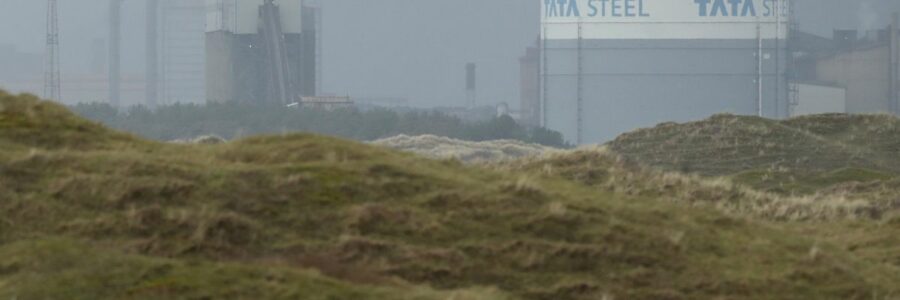
‘Pace of engagement with UK has picked up’
‘As Tata Steel we will obviously use group-level leverage to make progress where we want.’
Tata Steel’s protracted discussions with the UK government on financial support for transition to greener steel appear to be finally moving in the positive direction with both sides working towards a solution.
In a video interview, T V Narendran, managing director and chief executive officer, tells Ishita Ayan Dutt/Business Standard that collectively the group is one of the big investors and employers in the UK and Tata Steel would use group-level leverage to make progress where required.
Europe dragged Tata Steel’s performance in the last three quarters on a consolidated level. When is it likely to turn the corner?
The issue we have had the last two-three quarters is largely with the Netherlands, which has always been Ebitda- and PAT-positive (Ebitda is earnings before interest, tax, depreciation and amortisation and PAT is profit after tax).
The UK has been swinging from positive to negative Ebitda.
But the second half of the year is when you will see recovery, more specifically from November.
One blast furnace that has been down for relining in the Netherlands should start in Q3.
The cost of energy and electricity in Europe is coming down and will fall more rapidly in Q3 and Q4.
And if steel prices start going up, then you will see a quicker recovery in European performance.
But steel prices have started moving up?
In flat products, across the world, the view is that we have reached the bottom.
In Southeast Asia, prices have gone up by $20-30 a tonne and offers have started creeping up in Europe.
In India, there are attempts to push up prices, but we are still waiting for some traction. So, prices seem to have bottomed out.
Is there any breakthrough in your discussions with the UK government on financial support?
I think we are making good progress — the frequency of meetings has increased and the conversations are deeper. We have engagement at the highest level.
In many ways, there is a greater willingness and commitment to find a solution quickly.
We are hoping that in the next couple of months we will be at a stage where we can at least announce some sort of framework on this.
The depth and pace of engagement have picked up very significantly.
Is there a possibility that you will get more than the 300 million pounds offered by the government?
That’s the hope and expectation. We have already said that at 300 million pounds, it doesn’t work.
We are also looking at our own proposal to see if we can do better than what we had proposed. The idea is to find common ground.
Is there a timeline for finalising this?
The larger timeline is that some assets are coming to their life’s end.
Clearly in the next year, we have to take a call one way or the other.
These results (financial) highlight that we are bleeding.
And we cannot continue bleeding for a long time. These are two aspects that are there as pressure points.
The government is also keen that this is a subject that needs closure sooner rather than later.
Discussions with the UK government were at group level for multiple projects. Has Tata Sons’ announcement on the battery plant in the UK helped fast-track your discussions?
The Tata group has a huge stake in the UK because multiple businesses — Jaguar Land Rover, Tata Steel, TCS, Tata Consumer Products, and Tata Chemicals — are all there.
We are one of the big investors and big employers in the UK, collectively.
So there is a group-level relationship. As Tata Steel we will obviously use that group-level leverage to make progress where we want.
And I think there is acceptance of that on both sides.
Feature Presentation: Aslam Hunani/Rediff.com
Source: Read Full Article